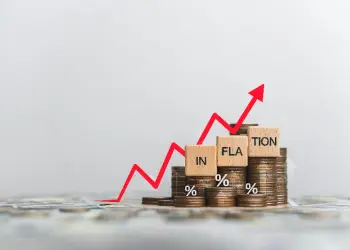Mutual Funds vs. ETFs – Which Investment is Better in 2025?
Are you confused between Mutual Funds and ETFs? In 2025, investors are looking for cost-effective, high-return, and tax-efficient investment options. This guide breaks down the key differences, advantages, and best mutual funds & ETFs to help you make the right choice
Mutual Funds vs. ETFs – Key Differences, Pros & Cons, and Best Picks for 2025
Pros & Cons of Mutual Funds & ETFs
✅ Pros of Mutual Funds
✔
Professional Management – Fund managers handle stock selection & portfolio balancing.
✔
Great for Passive Investors – You don’t need to monitor the market daily.
✔
Automated Investments – SIPs (Systematic Investment Plans) help in disciplined investing.
❌ Cons of Mutual Funds
❌
Higher Fees – Actively managed funds have higher
expense ratios.
❌
Less Tax Efficient – You pay capital gains tax when fund managers rebalance the portfolio.
❌
Limited Trading Flexibility – Can only be bought or sold at the
end of the trading day.
✅ Pros of ETFs
✔
Lower Cost – Many ETFs have an
expense ratio below 0.10%.
✔
Tax Efficiency – ETFs minimize capital gains tax compared to mutual funds.
✔
Instant Liquidity – You can
buy/sell ETFs anytime like a stock.
✔
Diversification – ETFs track indices like the S&P 500, reducing risk.
❌ Cons of ETFs
❌
Requires Active Monitoring – Since ETFs trade like stocks,
investors need to watch price movements.
❌
Trading Fees – Some platforms may charge fees when buying/selling ETFs.
❌
Not Ideal for Small, Regular Investments – Unlike mutual funds,
ETFs don’t allow automatic SIPs.
Best Mutual Funds & ETFs for 2025
1️⃣ Best Mutual Funds for 2025
✔ Vanguard 500 Index Fund (VFIAX) – Best for Long-Term Growth
✅ Expense Ratio:
0.04%
✅ Tracks the
S&P 500 Index
✔ Fidelity Contrafund (FCNTX) – Best Actively Managed Fund
✅ Expense Ratio:
0.85%
✅ Focuses on
growth stocks like Apple, Microsoft, and Amazon
✔ Schwab U.S. Dividend Equity Fund (SCHD) – Best for Dividend Income
✅ Expense Ratio:
0.06%
✅ Dividend Yield:
3.5%
2️⃣ Best ETFs for 2025
✔ SPDR S&P 500 ETF (SPY) – Best for Broad Market Exposure
✅ Expense Ratio:
0.09%
✅ Trades like a stock but tracks the
S&P 500
✔ Invesco QQQ ETF – Best for Tech Growth
✅ Expense Ratio:
0.20%
✅ Tracks the
Nasdaq-100, including Apple, Google, and Tesla
✔ Vanguard Total Bond Market ETF (BND) – Best for Conservative Investors
✅ Expense Ratio:
0.03%
✅ Invests in
high-quality bonds for stability























